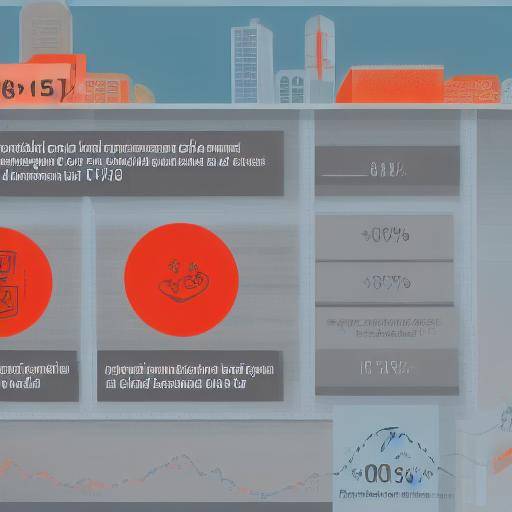
Introduction
Debt management is critical to financial health, both at the personal and business levels. However, there are many cases in which there is no regular follow-up on debts, which may result in devastating consequences. Throughout this article, the mistakes made in neglecting the monitoring and control of debts will be addressed, as well as highlighting the importance of being careful in this regard. It will also analyze how these neglects can impact the financial situation and how they can avoid falling into these traps. Keep reading to find out how to keep control of your debts can make a difference!
Common Mistakes by Not Making a Regular Follow-up to Debts
In modern life, it is common to neglect the regular follow-up of debts due to the busy daily rhythm. However, this neglect can lead to a number of serious financial errors. Then we will analyze some of the most common mistakes that arise by not properly monitoring debts:
- Accumulation of Excessive Interests: Lack of debt tracking can lead to losing the deadlines for payments and the accumulation of excessive interest. This neglect can generate an endless cycle of growing debt.
- Damage to Credit Rating: The neglect of debt tracking may cause late defaults or payments, which in turn may prejudice your credit rating. A low credit score can hinder your ability to access future loans.
- Overload of Non- Priority Debts: Without effective control, payments may be unevenly allocated, which may result in the accumulation of debts in non-priority areas, leaving aside debts of greater importance, such as housing or education.
- Lack of Financial Perspective: Not regularly monitoring debts can lead to a lack of realistic understanding of the personal or business financial situation. This may result in inadequate financial decisions or lack of long-term planning.
Debt Monitoring: The Importance of Maintaining Control
Continuous monitoring of debts is essential to maintain a stable and healthy financial situation. By exercising effective control over debts, it is possible to avoid falling into problematic situations. We will then explore the importance of debt monitoring and control, as well as the need to exercise caution.
History and Context of Debt Monitoring and Control
Debt monitoring and control have deep historical roots in financial management. Over the years, the evolution of financial practices has demonstrated the importance of understanding in detail and controlling all aspects of debt. From ancient practices of keeping records to modern financial systems, debt monitoring has been critical to maintaining economic stability.
Benefits and Challenges of Debt Monitoring and Control
The ongoing monitoring and control of debts offers a number of significant benefits. By keeping an updated debt record, potential problems can be identified before they become financial crises. However, there are also challenges associated with this process, such as the need to devote time and resources to ensure effective follow-up.
Complete Analysis of Best Practices in Debt Monitoring and Control
In addressing debt monitoring and control, it is crucial to consider effective best practices and approaches. Through detailed case studies and analysis, we can identify the most successful strategies to maintain debt control and avoid costly mistakes.
Comparison of Monitoring, Control and Precaution in Debt Management
The term "precaution" is fundamental in the area of debt management. Compare monitoring, control and caution allows us to understand the interconnection and importance of each of these aspects. While monitoring focuses on constant monitoring and registration, control seeks to maintain financial discipline and avoid uncontrolled accumulation of debts. Caution, for its part, implies a preventive and careful view of financial decision-making.
Practical Tips and Actions to Take for Effective Debt Monitoring
To ensure effective monitoring of debts, it is essential to implement concrete actions. Establish payment reminders, use financial management tools and periodically review the state of debt are just some of the practical measures that can make the difference in personal or business financial management.
Industry Perspectives and Expert Reviews About Debt Monitoring and Control
The opinions and perspectives of industry experts are essential to understanding in depth the challenges and opportunities in debt monitoring and control. Interviews with financial professionals, trend analysis and future projections provide a comprehensive and detailed overview of best practices in this area.
Case Studies and Practical Applications of Debt Monitoring and Control
By exploring real cases and practical applications of debt monitoring and control, it is possible to identify successful strategies and learn from others' experiences. Through real cases, we can understand how certain financial decisions directly impact debt management and financial stability in general.
Future Trends and Predictions in Debt Management
The financial world is constantly evolving, and understanding future trends in debt management is crucial for preparing and making informed decisions. From digitizing financial processes to developing new monitoring tools, it is crucial to be aware of the trends that will shape the future of debt management.
Conclusions and FAQs
In conclusion, effective monitoring and control of debts are critical to maintaining a stable financial situation and avoiding costly errors. However, caution also plays a crucial role in financial management, as it promotes more informed decisions and prevents future problems.
Frequently asked questions
Why is it important to regularly monitor debts?
Regular monitoring of debts is critical to identifying potential problems before they become financial crises. Keeping up-to-date debt registration allows you to make informed financial decisions and avoid unpleasant surprises.
How can I maintain effective control of my debts?
To maintain effective debt control, it is crucial to establish a tracking system and payment reminders. Using financial management tools and periodically reviewing the state of debts are practical actions that can make the difference.
What is the role of precaution in debt management?
Caution in debt management implies a preventive and careful view in financial decision-making. In exercising caution, it is possible to avoid costly errors and maintain a more stable financial situation in the long term.
What are future trends in debt management?
Future trends in debt management include the digitization of financial processes, the development of more sophisticated monitoring tools and the integration of artificial intelligence into financial decision-making.
How can I prevent neglect in debt monitoring from affecting my credit rating?
To avoid neglect in debt monitoring affecting your credit rating, it is crucial to establish payment reminders and use financial management tools to ensure that payments are made in a timely and consistent manner.
What measures can I take to exercise caution in managing my personal debts?
To exercise caution in managing your personal debts, it is crucial to carefully analyze loan options, avoid over-indebtedness and plan your long-term finances to minimize the risk of financial problems.
Conclusion
In the absence of regular follow-up on debts, there is a risk of incurring financial errors that may have devastating consequences. Effective monitoring, disciplined control and precaution in debt management are essential to avoid falling into these traps and to maintain a stable financial situation. In understanding the importance of these aspects and following best practices, it is possible to take control of your debts and ensure a sound financial basis for the future.
This article has provided a detailed overview of common mistakes by neglecting debt tracking, the importance of debt monitoring and control, as well as practical advice for effective management. Make sure you implement these practices in your personal or business finances to avoid costly errors and ensure a more stable financial future.
With these knowledge, you are better equipped to face financial challenges with confidence and make informed decisions. Remember that monitoring, control and caution are your allies in debt management. Keeping control of your finances gives you the tranquility of being on a solid and secure financial path.
Don't let the financial mistakes take you by surprise! Know, control and anticipate, and you'll be one step ahead in the financial game.
External Links
- Importance of Debt Monitoring and Control
- Caution in Debt Management
- Future Trends in Debt Management
Remember, knowledge is power and financial planning is key on the path to success. Don't let the financial mistakes take you by surprise. With a proactive approach, monitoring, control and caution will ensure a more stable and prosperous financial future. Start taking control of your debts today!






















































